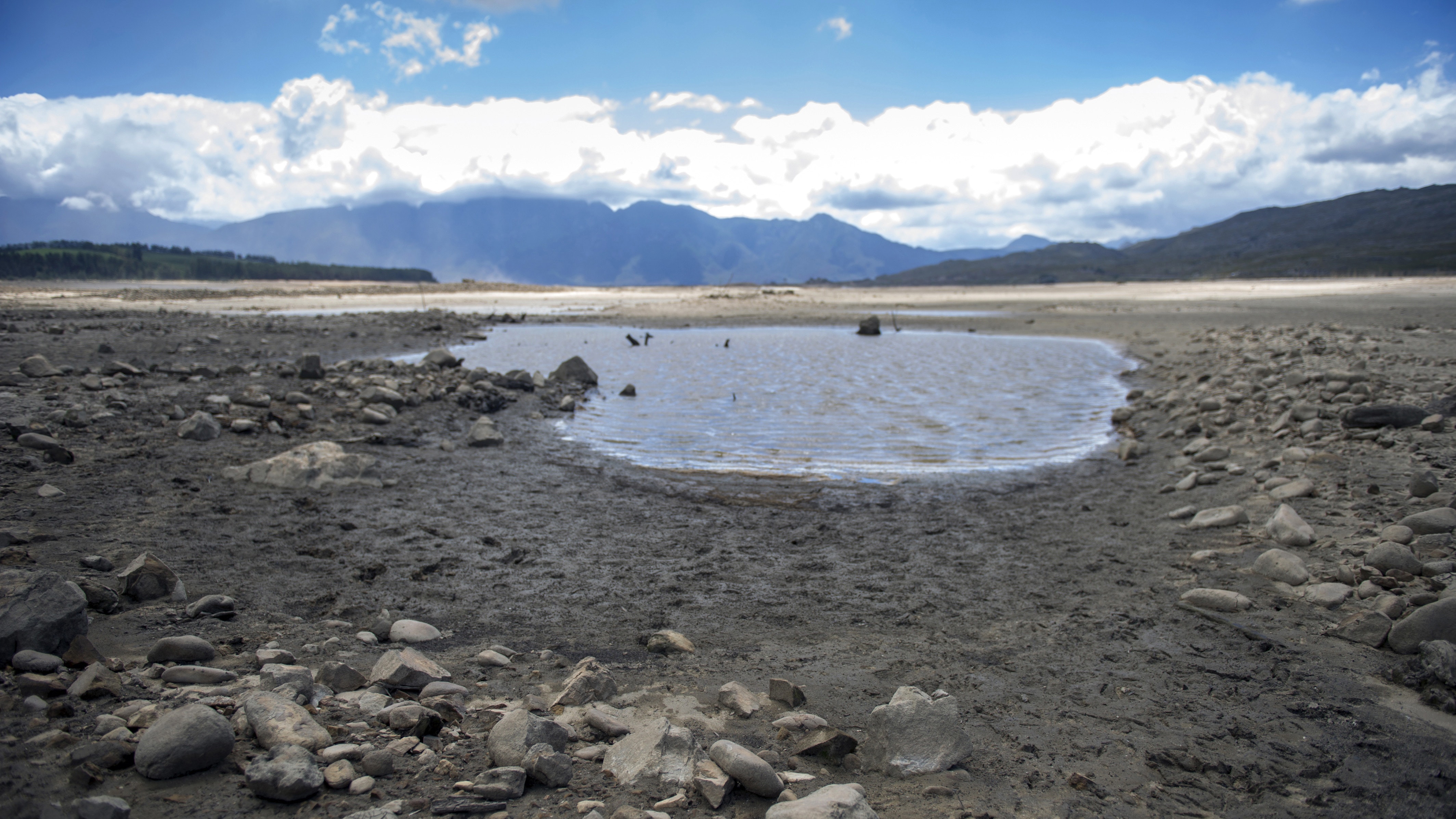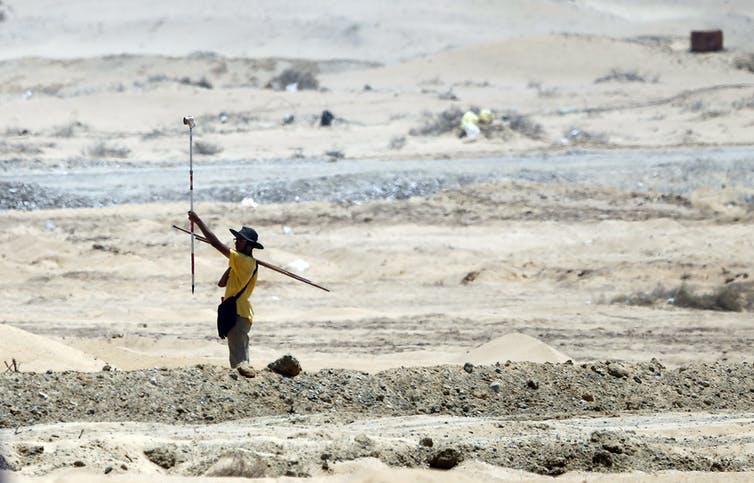There are few industries as pivotal to driving Africa’s sustainable economic development as the construction and civil engineering sectors.
No shortage of challenges lies ahead in the development of Africa’s built environment. These challenges are, primarily, financial; How can capital be raised to improve infrastructure and living conditions across the continent? And, environmental; How can a continent of over 1.2bn people (and counting) develop without accelerating climate change and degrading the natural environment?
Shaping a path of truly sustainable economic development on the African continent will need engineering minds at the forefront of policymaking, strategy, and delivery.
As the leading economies of the continent seek to accelerate industrialisation, does Africa’s civil engineering sector have the depth and capacity to deliver on the mega-projects required for growth?
Who are the innovators that will find solutions to challenges around affordable housing, the infrastructure gap, skills shortage, access to capital and environmental impact?
AfricaLive.net speaks with sector leaders from across Africa to understand how African civil engineers seek to shape the future of the continent.
The Debate
Environmental Sustainability & Green Building
Much of Africa will feel the severe effects of climate change more harshly than anywhere else in the world.
Few would argue that building the infrastructure that could potentially lift millions of Africans out of poverty is worthwhile if the very same people have their standard of living impacted by extreme weather patterns, drought, and rising sea levels.
The problem facing the sector is that many of the materials used to build our cities and infrastructure are incredibly damaging to the planet.
The production of concrete and steel, taken together, is responsible for 15% of worldwide CO2 emissions.
Around 8% of global CO₂ emissions come from cement production alone. As other industries such as energy and agriculture reduce their share of emissions, cement production may account for nearly a quarter of all human-driven CO₂ emissions by 2050.
Decarbonising industry and the economy is essential to improve the balance between our ecological footprint and the planet’s renewable resources. This would provide the best possible chance for humanity to mitigate the effects of climate change.
Outside of construction, in urban planning and industrialisation of the economy, careful planning is required to reduce the impact of economic development on the environment.
Should Africa’s engineers play a role in shaping a future which embraces the principles of green building?
What would a truly sustainable future for engineering, construction and infrastructure development look like on the African continent?
 “I believe that architects, engineers and all those in the field need to work together to make this green breakthrough. There has to be continuous learning and a willingness to reduce carbon emissions in all we do. We have the hottest continent in the world, and we have to push the green agenda as much as possible.
“I believe that architects, engineers and all those in the field need to work together to make this green breakthrough. There has to be continuous learning and a willingness to reduce carbon emissions in all we do. We have the hottest continent in the world, and we have to push the green agenda as much as possible.
We ensure that the green building message is not just left to activists and those in the engineering and building field. We are advocating for it to be incorporated into the education system. Social grassroots activism is also important because we must teach every household to at least have one tree in their compounds. We must educate by doing or helping the community get such initiatives done. Once the people understand the importance of green living, then green building will no longer be a foreign idea.
Amid the green push, we are trying our best to make locally available green materials for building. We recognise that working with cement leads to a lot of carbon emissions, and our approach is to limit cement use as much as possible. Our focus in every country we work in is to use locally available materials that produce little to no carbon emissions.
We regulate cement use to about 10 percent and use locally abundant substitute materials like timber and glass.”
Sewa R. Capo-chichi, CEO, Capeaux Ltd, Ghana
 “Cross-border collaboration has been hindered for many decades because opportunities had been locked and restricted within individual countries. The AfCFTA provides a platform for people to think beyond their borders and make collaborations that were hard to make before. Governments must now operationalise the trade area spirit and break all barriers to trade. The people in our sector must open themselves to engineers from other African countries so that we can work together and have the chance to thrive.
“Cross-border collaboration has been hindered for many decades because opportunities had been locked and restricted within individual countries. The AfCFTA provides a platform for people to think beyond their borders and make collaborations that were hard to make before. Governments must now operationalise the trade area spirit and break all barriers to trade. The people in our sector must open themselves to engineers from other African countries so that we can work together and have the chance to thrive.
Our countries benefit when we come together and develop innovative solutions. We are currently developing a solution to help improve our urban air quality. The point is to note the hotspots where air quality is most affected. We want to determine how real estate, transport, and factories affect air quality. The data will help environmental agencies come up with a response while also helping real estate developers, transporters and governments come up with ways to control emissions. This is a solution that can be exported to other African cities once we successfully pilot it.
We have to find alternative materials to build our houses and rely less on earth materials. The Chinese took the lead in this by banning earth materials in construction and used their wetlands for food production instead. In Africa, we largely use our wetlands for building which is part of the reason we are yet to be food secure. If we don’t rethink the way we put up structures and embrace green building, we will be in a precarious position in the coming decades”.
Eng. Lammeck Kajubi, CEO, Queensland & Leeds Consulting Engineers LLC. Uganda
 “A sustainable future for us would be to start doing things a bit differently. We must move away from the methods of construction we are deploying at the moment. Our methods today are mostly onsite use of steel and also use of concrete which is very polluting. In the medium term, we must embrace offsite construction methods. We must look at proper water treatment, investment in solar energy, and also wind energy.
“A sustainable future for us would be to start doing things a bit differently. We must move away from the methods of construction we are deploying at the moment. Our methods today are mostly onsite use of steel and also use of concrete which is very polluting. In the medium term, we must embrace offsite construction methods. We must look at proper water treatment, investment in solar energy, and also wind energy.
We will improve our industry if we can reduce the costs through manufacturing while also doing away with old methods of construction. We will never be able to fill the infrastructure gaps in our continent with the construction methods we are using today because the cost is too high and also because construction takes too much time.
At some point, decision-makers must realise that we cannot solve ancient problems with ancient solutions. If industry leaders don’t make the call soon enough, demographic pressure will force things, and soon Africa will follow in the footsteps of the US and other developed jurisdictions”.
Saad Charkioui, Managing Director, Valotech Enterprise. Morocco
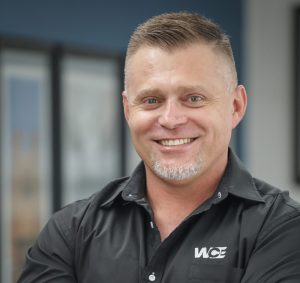 “A lot of our governments have to realise that maintaining super tight borders is counterproductive in this day and age. It took me a long time, for instance, just to get Namibian citizenship and I feel that our government is missing the point on this one. It benefits the country to have foreign nationals work here because they get to deposit more funds in the country which helps uplift our economy. Our government also has to make some adjustments to open up taps for money to flow in. A discussion I had with representatives from major international donors revealed that sometimes money meant for infrastructure development doesn’t come through because of some issues with government structure. We need to step up all our processes from tendering, procurement, and other administrative areas.
“A lot of our governments have to realise that maintaining super tight borders is counterproductive in this day and age. It took me a long time, for instance, just to get Namibian citizenship and I feel that our government is missing the point on this one. It benefits the country to have foreign nationals work here because they get to deposit more funds in the country which helps uplift our economy. Our government also has to make some adjustments to open up taps for money to flow in. A discussion I had with representatives from major international donors revealed that sometimes money meant for infrastructure development doesn’t come through because of some issues with government structure. We need to step up all our processes from tendering, procurement, and other administrative areas.
I also believe that the government should focus on bulk infrastructure and services, not smaller projects like housing. Though affordable housing is a huge concern for this market, the government would do better to incentivise private players to develop this area, than go into it themselves. Some private players may want to acquire some land to be able to house their workers but can’t do that because of historical issues that have to do with apartheid. The government and policymakers must, therefore, look into these issues and provide the legal infrastructure needed for us to access and develop the land.
We are also missing the mark when it comes to our preference and insistence of single resident housing with a compound that one can walk around. Other developed jurisdictions embrace medium to high-density housing with multiple apartments built on top of each other to save on space. We have to cater to our growing population, limited space, while also bringing people closer to places of work. Our political leaders must embrace sustainable ways of building cities and adhering to internationally accepted social norms. Sustainability must also extend to our energy footprint; we must check that our houses are sustainable and affordable in that way as well”.
Victor Rieger, Managing Director, WCE Consulting Engineers. Namibia
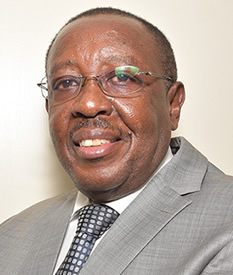 “Far too many times, players within engineering and construction look inwardly and keep their conversations amongst themselves. We end up having discussions that don’t bring much value and things become redundant. It is important to distil and align issues with bigger national agendas and then take these talking points to relevant forums that will see them addressed. Solutions are at times right under our nose but some of us don’t know it because we don’t talk to other people. Collaboration is needed for us to share knowledge and information, as well as, build economies of scale. Our coming together will see us build momentum and achieve our goals faster.
“Far too many times, players within engineering and construction look inwardly and keep their conversations amongst themselves. We end up having discussions that don’t bring much value and things become redundant. It is important to distil and align issues with bigger national agendas and then take these talking points to relevant forums that will see them addressed. Solutions are at times right under our nose but some of us don’t know it because we don’t talk to other people. Collaboration is needed for us to share knowledge and information, as well as, build economies of scale. Our coming together will see us build momentum and achieve our goals faster.
The solutions that we create for our continent must be far-reaching and we must gear them to penetrate even the remotest places. We must look at cooking solutions, lighting solutions and others so that we can make a real impact. For this to work, we must engage governments and build partnerships that last. Our goal must be cost-effective solutions as well as on-time delivery. We can provide value by studying our local conditions and forging solutions that are agreeable with locals.
So far, we have been a net recipient of technology. That is an expensive way of developing a continent as large as ours. Money, therefore, has to be invested in research and innovation. Our local universities are not doing enough because they are underfunded and instead of focusing on research they have become pipelines for churning out graduates. We could also use policy and a proper legislative framework to tighten up against corruption and the lack of proper budgets for projects. We can’t grow the way we want to if we keep running into funding problems that cause delays and process hitches”.
James N. Mwangi, CEO, Kurrent Technologies. Kenya
Intra-African Trade
The arrival of the African Continental Free Trade Agreement (AfCFTA) marks an opportunity to increase cross-border collaboration, partnership and trade within the construction and engineering sectors.
Furthermore, the COVID-19 pandemic has highlighted the fragility of many supply chains and should concentrate minds on the need to build stronger local and regional ties.
The impact of COVID-19 on the sector has been considerable, particularly in South Africa. Spending on infrastructure projects and implementing AfCFTA to drive international trade are seen by many as the best hopes for the industry to bounce back.
What impact will AfCFTA have upon the construction and civil engineering sectors in Africa?
Where is there opportunity developing for African firms to expand cross-border?
 “[During the disruption caused by COVID-19] there were impacts on the cost of building materials, for example. When China shut down, the cost of building materials in Kenya rose by 5 – 10%. This may not have a major impact on a residential project, but it becomes prohibitive in a billion-dollar infrastructure project. This reinforces the need for better intra-regional trade linkages.
“[During the disruption caused by COVID-19] there were impacts on the cost of building materials, for example. When China shut down, the cost of building materials in Kenya rose by 5 – 10%. This may not have a major impact on a residential project, but it becomes prohibitive in a billion-dollar infrastructure project. This reinforces the need for better intra-regional trade linkages.
The delay in implementing the AfCFTA agreement, along with the pandemic downtime, allows companies to reinforce what they have been doing to get systems in place, and better prepare to take advantage of emerging opportunities. At a strategic level, it allows them time to assess the impact of the Covid-19 pandemic on the sector, and on companies in the global north. In countries badly affected by the pandemic, a lot of the industrial capacity is in small to medium-sized companies which have been incredibly badly impacted, so this may present new opportunities for African companies to look at where they can take space in that market.”
Duncan Bonnett, Director, Market Access and Research at Africa House. South Africa
 “With the African Continental Free Trade Area (AfCFTA) agreement now upon us, we are looking at various strategies that will help keep us competitive. We are looking at providing value propositions so that customers can get their needs met effectively. We are also looking at adopting new ideas and bringing something new not only to the Ugandan construction industry but also to the continental scene. Branding is also a major focus for us because we want to document customer experience and keep a relevant brand throughout the continent.
“With the African Continental Free Trade Area (AfCFTA) agreement now upon us, we are looking at various strategies that will help keep us competitive. We are looking at providing value propositions so that customers can get their needs met effectively. We are also looking at adopting new ideas and bringing something new not only to the Ugandan construction industry but also to the continental scene. Branding is also a major focus for us because we want to document customer experience and keep a relevant brand throughout the continent.
We are also looking at expanding internationally and having offices outside Uganda. Expanding into new markets means we will open ourselves to increased competition as well as more opportunities. There is also a long term plan to start manufacturing cement and steel so that we can pass over fewer costs to the end customer while also providing quality. We want to grow at our own pace despite the increased competition that is coming throughout the continent.”
Edward Matege, Managing Director, Meak Construction & Engineering Services. Uganda

“Uganda was one of the very first countries to endorse the AfCFTA agreement and that makes us very excited. AfCFTA makes the continent almost one village association so to speak.
We are already partnering with colleagues in Kenya, Rwanda, and Morocco; so this is going to open even more doors to partnerships.
We look forward to more opportunities because the market will expand and resources will increase. It will set the stage for the execution of huge cross border projects that would have been hard to do all by ourselves”.
Businge Donald, CEO, KUKA Uganda. Uganda
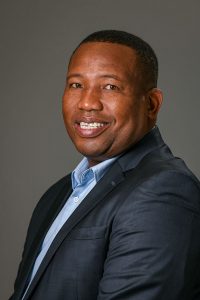
“Civil engineering is all about developing African infrastructure for us. The 2010 FIFA World Cup gave us the perfect platform to showcase what we can do and we must continue on that trajectory.
We must use that experience to build more and become like Europe in terms of infrastructure development. Though some challenges exist, we have a continent full of young energetic people.
With the population being so young we definitely have the human capacity to build, innovate and maintain. The AfCFTA agreement means that we are now on the cusp of large infrastructure projects throughout the continent.
The tug of war for us will be whether to look at projects all over the continent or just focus on South Africa”.
Bhekani Mdlalose, Group Managing Director, Grinaker LTA. South Africa
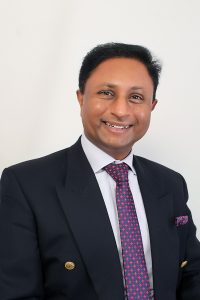 “The “AfCFTA” agreement provides for the proper structuring of PPP deals where governments for instance provide land and basic services so that private developers can open up these areas by building infrastructure. In line with the AfCFTA agreement’s target of poverty alleviation, Devtraco is one of the front runners that aims to contribute immensely to value and wealth creation. To produce more wealth through infrastructure, we need to lower costs by effectively controlling factors of production. One of the ways to reduce costs is by more players coming in to increase competition in a way that lowers production cost.
“The “AfCFTA” agreement provides for the proper structuring of PPP deals where governments for instance provide land and basic services so that private developers can open up these areas by building infrastructure. In line with the AfCFTA agreement’s target of poverty alleviation, Devtraco is one of the front runners that aims to contribute immensely to value and wealth creation. To produce more wealth through infrastructure, we need to lower costs by effectively controlling factors of production. One of the ways to reduce costs is by more players coming in to increase competition in a way that lowers production cost.
We must structure our policies to attract investment and spur construction projects. The government must also get more hands-on by offering subsidies so that projects can be done more cost-effectively. There also has to be provision within the policy framework, for the taking care of deprived people within society. PPPs can come in handy in building decent dwellings for citizens like it was done in South Africa with ABSA being a leader in that endeavour. South Africa having so much experience in structuring effective PPPs, should be reached out to, so that other African nations can learn.
We can revolutionise this industry by looking beyond brick and mortar buildings and look at green building. Lowering the cost of housing by using different more available materials will lessen the cost and increase the speed of projects. Alternative building technologies, as well as innovations in financing that help lower the cost of service delivery to people is what we should be looking at”.
Annish Doorgapersad, Group CEO, Devtraco Group. Ghana
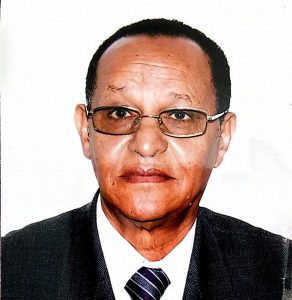 “Before we can talk about the opportunities, we must establish certain harmonised standards. Setting up standards will create the foundation we need to start building serious infrastructure. Standards will also help us as we seek to reduce our over-reliance on imports and produce our own materials. If we had standardized materials for construction, it would save us a lot of time and money when building infrastructure. The solution here is for engineers, architects and manufacturers to come together and create similar standards across the continent.
“Before we can talk about the opportunities, we must establish certain harmonised standards. Setting up standards will create the foundation we need to start building serious infrastructure. Standards will also help us as we seek to reduce our over-reliance on imports and produce our own materials. If we had standardized materials for construction, it would save us a lot of time and money when building infrastructure. The solution here is for engineers, architects and manufacturers to come together and create similar standards across the continent.
We have, for the most part, worked on the health, educational and residential projects. I see opportunities coming when it comes to providing infrastructure for these sectors. Other stakeholders must come in and join in our efforts as we seek to create the infrastructure that will move our continent forward. Our ideas are being appreciated in the health sector for instance because our designs help medics serve patients even better”.
GebreMeskel Teare, CEO, G Meskel Teare. Uganda
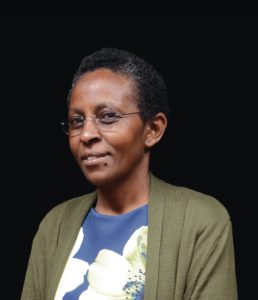 “This is the best time in a long time to be an African doing business on the continent. A great indicator of this is the fact that people from other continents are clamoring to come to Africa. China amongst others is fighting hard to come and have a piece of the pie. Current events present a lot of opportunity for African businesspeople. We also have a very literate young population that is looking to grow and exploit opportunities.
“This is the best time in a long time to be an African doing business on the continent. A great indicator of this is the fact that people from other continents are clamoring to come to Africa. China amongst others is fighting hard to come and have a piece of the pie. Current events present a lot of opportunity for African businesspeople. We also have a very literate young population that is looking to grow and exploit opportunities.
A combination of literate youth and increased opportunity will help our continent experience growth that has been so elusive for many decades. The opportunities provided by the “AFCFTA” will be affected by our underdeveloped manufacturing capabilities though. The cost of importing needed material for the development of infrastructure will eat into the gains that will be made.
Going forward I would urge our leaders to look at our local artisan sector “Jua Kali” and make sure all that can be fabricated in Kenya is what we use. Patronising local people will save on costs while also creating employment and boosting the economy. On top of that we must adhere to the local content policy that stipulates that foreign contract awards have local understudies. A local understudy learns from a foreign company and becomes vast enough to undertake large projects by themselves. Foreign companies also come in well-funded and ready to undertake the project smoothly compared to local content firms. A level playing field is required if we are to grow our capacities as local firms”.
Jane Mutulili, Founder, La Femme Engineering Services. Kenya
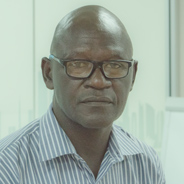 “We can de-risk our country and continent by making use of local content policies. Local companies must show the skills and competencies to be able to take advantage of the work created by such policies. Once foreign companies see that there are competent local firms on the ground, investor confidence will grow accordingly. We must also embrace a different model of doing business as African firms.
“We can de-risk our country and continent by making use of local content policies. Local companies must show the skills and competencies to be able to take advantage of the work created by such policies. Once foreign companies see that there are competent local firms on the ground, investor confidence will grow accordingly. We must also embrace a different model of doing business as African firms.
The African Continental Free Trade Area Agreement will provide a platform for us to explore opportunities beyond our borders, and that is the business model we should embrace. We should build capacity and get the political will needed to support African businesses and would-be investors.
We must not also be content with our status as a raw material exporter. It is possible for us to begin the process of developing sophisticated manufacturing capabilities. Once that is done we will be able to use our raw materials to make the products we need”.
Davis Nkala, Managing Director, DNK & Associates. Botswana
 “We must develop the structures we need to create the Africa we want to see. Our wealth in terms of human as well as natural resources should be enough for us to develop the products we need to sustain ourselves. At the moment, most African construction firms buy products from abroad. It’s not that we don’t want to buy from within the continent, it’s because there is a huge communication breakdown that leads us down that path.
“We must develop the structures we need to create the Africa we want to see. Our wealth in terms of human as well as natural resources should be enough for us to develop the products we need to sustain ourselves. At the moment, most African construction firms buy products from abroad. It’s not that we don’t want to buy from within the continent, it’s because there is a huge communication breakdown that leads us down that path.
The new continental agreement can help us tear down those barriers and maybe we will start to see more intra-African trade than ever before. The lack of standardisation is another problem that we must attack. Our markets are filled with different products that serve the same function which makes quality control difficult. We must standardise so that we can have uniform standards and a way to tell good quality.
We can work faster if we come together instead of each country developing its own set of standards. It will be great to know that you can get your material needs met easily within your region because everybody is utilising the same standards. Uniform standards will make materials available locally; saving us money as well as all the time we lose trying to import foreign parts and materials”.
Gallo Saidy, Managing Director, Doku Group. Gambia
 “As engineers we do not have an abundance of resources nor do we have the political power to bend things our way, we do have the skills to make a difference though. Our skill set is what makes us relevant to our industry and by extension our continent, and that’s our main focus. Africa still has a long way to go in terms of infrastructural development, that’s why we want to have a firm foothold in South Africa and then spread out to other parts of the continent.
“As engineers we do not have an abundance of resources nor do we have the political power to bend things our way, we do have the skills to make a difference though. Our skill set is what makes us relevant to our industry and by extension our continent, and that’s our main focus. Africa still has a long way to go in terms of infrastructural development, that’s why we want to have a firm foothold in South Africa and then spread out to other parts of the continent.
The AfCFTA agreement will help us discover new work opportunities. Though we don’t see a clear path to new business opportunities yet, the agreement will help us follow capital flows progressively which will lead us to where infrastructure building opportunities will arise.
We have to follow as well as anticipate trends that will come after the AfCFTA launch, and identify opportunities to build roads. We believe that infrastructure development will accelerate in the aftermath of the agreement and that will go a long way in de-risking Africa. De-risking the continent must also involve us doing business properly in a way that builds trust. Global financiers must be assured of a quality product and return so that they can be incentivised to come here”.
Ulrich Drotsky, Engineer, ARQ Consulting Engineers. South Africa
 “Because of the capital might of some of these multinationals, it’s difficult to compete sometimes as local players. The larger companies in Ghana got to where they are because of partnerships and that is a model we have to embrace. We are yet to fully embrace working together and that silo mentality stands in the way of us becoming giants.
“Because of the capital might of some of these multinationals, it’s difficult to compete sometimes as local players. The larger companies in Ghana got to where they are because of partnerships and that is a model we have to embrace. We are yet to fully embrace working together and that silo mentality stands in the way of us becoming giants.
The Africa Continental Free Trade Agreement is, therefore, long overdue and quite needed. As local construction companies, we have to step up our game and do better in terms of quality. There’s lots of room for improvement when it comes to our quality compared to that from Europe, for instance.
Aside from quality, there is also bureaucracy that affects the market and makes it difficult to de-risk our continent. We must come together as business people and meet with policymakers to make decisions that help change our fortunes and build a sustainable future. As an industry, we tend to embrace everything that comes from the west sometimes to our own detriment. We must look at what is locally relevant and not just copy what we see in Europe”.
Francis O. Blay, CEO, AKOFIS Group. Ghana
 “Construction is foundational to almost everything we are trying to achieve. If we need to move from place to place, we need construction. Distribution of food and other materials also needs the construction sector. Our sector will, therefore, define the future of the continent and we are getting there day by day. We have to do more to showcase our continent though because African news always flies under the radar. We have to attract the attention of the international community so that we can get the publicity we need.
“Construction is foundational to almost everything we are trying to achieve. If we need to move from place to place, we need construction. Distribution of food and other materials also needs the construction sector. Our sector will, therefore, define the future of the continent and we are getting there day by day. We have to do more to showcase our continent though because African news always flies under the radar. We have to attract the attention of the international community so that we can get the publicity we need.
Our development will hinge heavily on our ability to overcome restrictions that come with tight borders. We must open corridors that make it easier to navigate all the regions. Countries within a certain region have inhabitants that are closely related anyway, so it makes no sense to have so many restrictions. Barriers to trade as well as barriers to movement must fall.
Working in African markets presents a huge element of risk but the profit margins are better than in other places. Most people miss the fact that the continent still has a long way to go and lots of infrastructure is needed. The needs here are more than those in Europe, and the margins will surprise you”.
Volkan Tegen, Managing Director, Ametal Africa. South Sudan
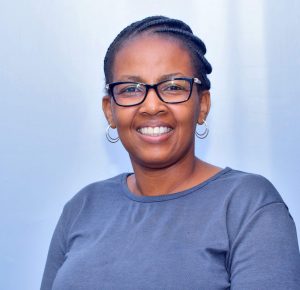 “As engineers, we need to trade places with marketers in terms of how vocal and visible we ought to be. We are a few streets behind the rest of the world in terms of our engineering, so we need to collaborate instead of working in silos. There are great opportunities in Africa and especially in my country when it comes to waterworks.
“As engineers, we need to trade places with marketers in terms of how vocal and visible we ought to be. We are a few streets behind the rest of the world in terms of our engineering, so we need to collaborate instead of working in silos. There are great opportunities in Africa and especially in my country when it comes to waterworks.
Water engineering offers a range of opportunities compared to others. You can pursue water supply, sanitation, wastewater treatment and others. Water engineering is, therefore, better for engineers looking to enter the market. The smaller jobs give young engineers the exposure needed to pursue bigger projects.
Collaboration is a major growth strategy for us because we reach out to even engineers that would be considered competition. Collaborations lead to partnerships that are worthwhile if done properly. Instead of missing out on big projects as disjointed medium local engineers, it’s better to join forces against big international firms that have more might than us individually. We live in the era of the African Continental Free Trade Area Agreement, and that affords us opportunities for peer-to-peer learning. Learning from other companies in Africa will help sharpen companies that are operating in lesser ways”.
Mercy Mugure, CEO, Engplan Consulting Engineers. Kenya
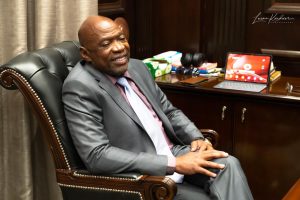 “The AfCFTA agreement is an inspired idea because it gives us a chance to have a business without borders. We will now be able to go into places like Zimbabwe, Zambia and other countries to compete. It also gives us a chance to compete with multinationals from India and China in those other countries and possibly win which we have done before. The agreement will lay to rest some of the restrictions that were imposed by colonial legacies of the past.
“The AfCFTA agreement is an inspired idea because it gives us a chance to have a business without borders. We will now be able to go into places like Zimbabwe, Zambia and other countries to compete. It also gives us a chance to compete with multinationals from India and China in those other countries and possibly win which we have done before. The agreement will lay to rest some of the restrictions that were imposed by colonial legacies of the past.
We can now go into areas without worrying about Portuguese or francophone protocols being a barrier. Another big plus is that fellow Africans will see an African-owned organisation like us that is well organised and accomplished and our success will rub on them. Overall, the trade agreement provides a platform where better African companies can set the marker for the rest to follow and catch-up”.
Simbi Phiri, Founder, Khato Civils. South Africa
The Future of African Cities

According to the African Development Bank Group (ADBG), Africa is the fastest urbanising continent in the world.
The continent’s rapidly growing population of over 1.2 billion people, includes 50% of the population under the age of 20, giving Africa the genuine opportunity to transition into a global powerhouse.
However, population growth, combined with legacy issues from poorly planned colonial-era cities leaves African urban areas in need of a rethink.
The ADBG states that between 40,000 and 50,000 people are added to African cities every day, and where housing is available, it is simply not affordable for the vast majority of Africans.
By 2030, 15 cities in Africa will have populations over 5 million, most of whom will live in informal settlements.
There is an urgent need to develop urban areas that are offer better living conditions and facilitate economic growth and job creation.
If African cities can be reimagined, clearly there lies opportunity beyond the challenges. Africa is rapidly urbanising. The continent’s population of 1.2 billion is expected to double by 2050. Over 80% of that growth will occur in cities. With better urban planning, investment to tackle the housing crisis, and investment into physical and digital infrastructure Africa’s cities can be the drivers of economic development.
Finding solutions to the challenges facing Africa’s cities will require collaboration between architects, engineers, urban planners, financiers and government policymakers.
What steps must be taken now to tackle the affordable housing crisis and build the world-class cities of Africa’s future?
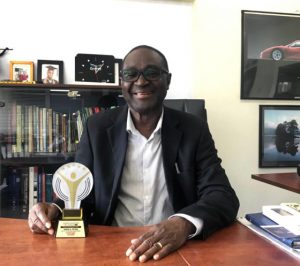 “Opportunities are abundant in housing. Reaping from the opportunities will first need us to find cheap ways to build houses. We must identify and make use of inexpensive building materials so that costs passed down to final clients remain low.
“Opportunities are abundant in housing. Reaping from the opportunities will first need us to find cheap ways to build houses. We must identify and make use of inexpensive building materials so that costs passed down to final clients remain low.
The government must chip in by ensuring we have adequate infrastructure. When a construction firm has to build up pathways and amenities themselves, those costs are reflected on the cost of the houses they build. The government must rise to the occasion to ensure costs are kept within reach of the people.
We recently won an international accolade with the world-renowned Shelter Afrique, a housing finance agency, after taking part in their 5000 for 5000 housing project international competition. We are now working with them towards the building of affordable homes in Ghana.”
Senyo Tetteh, Founder, S.Tetteh + Associates. Ghana
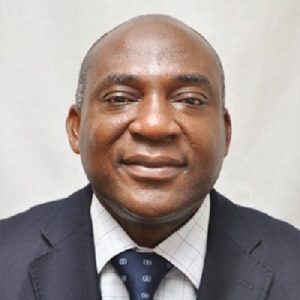 “We have a huge housing deficit, as well as, roads and highways that need commercialising. The major risk for me is, therefore, is coming up with sufficient capital to take advantage of the opportunities. Our human capital is rich and capable and we have the right culture for productivity. We also have businesses that can do what companies in America and Europe can do. De-risking Africa will not only involve capital injection, but also a focus on local content.
“We have a huge housing deficit, as well as, roads and highways that need commercialising. The major risk for me is, therefore, is coming up with sufficient capital to take advantage of the opportunities. Our human capital is rich and capable and we have the right culture for productivity. We also have businesses that can do what companies in America and Europe can do. De-risking Africa will not only involve capital injection, but also a focus on local content.
We need appropriate intervention like what happened in Malaysia. When they were pursuing their national agenda, they got to a point where they had to focus on developing their local capacity. Today, they are in a position to export some of their services both in the form of materials and human resources.
We must have a national agenda that promotes local content we can get behind. If we instead choose to remain as we are with high-interest rates and a nonchalant approach to local content, we just won’t compete. If we change our thinking though, we will be able to turn our fortunes around”.
Rockson Kwesi Dogbegah, CEO, Berock Ventures. Ghana
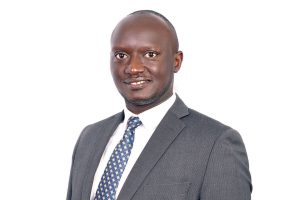 “Housing is a sector that can see a boom in our area. In most African cities, we have areas that have informal settlements that are not well planned or organised. The people who live in these areas are mostly blue-collar workers like our mechanics. It would be wise if people that are way higher on the pay scale would come together and use their disposable incomes to create better settlements for low-income earners. This is what we should be thinking about because there is a big enough demand to make such a project worth it. At EPC Africa, we want to build at least three thousand homes in the next five years to respond to the demand.
“Housing is a sector that can see a boom in our area. In most African cities, we have areas that have informal settlements that are not well planned or organised. The people who live in these areas are mostly blue-collar workers like our mechanics. It would be wise if people that are way higher on the pay scale would come together and use their disposable incomes to create better settlements for low-income earners. This is what we should be thinking about because there is a big enough demand to make such a project worth it. At EPC Africa, we want to build at least three thousand homes in the next five years to respond to the demand.
Such projects tie into our future as a continent which is largely dependent on the youth. We need to have an emphasis on technical education, because the more technical people we have, the easier it will be for our governments to build infrastructure. We must build our expertise to a point where it can be exported overseas at a competitive price.
The private sector can be instrumental in lifting our continent from the ashes. We can work with the government as well as international development partners like the World Bank, and come up with result-based funding strategies. Such a strategy would see part payments made after progress is done on a project. Such an arrangement would foster transparency as well as development”.
Ferdy Turasenga, CEO, EPC Africa. Rwanda
 “We need to have categories clearly spelt out when it comes to housing. We have low, high as well as middle-income dwellings. Majority of our cities have slums in them. Unless we get rid of the slums we won’t build top-class modern futuristic cities.
“We need to have categories clearly spelt out when it comes to housing. We have low, high as well as middle-income dwellings. Majority of our cities have slums in them. Unless we get rid of the slums we won’t build top-class modern futuristic cities.
Those who dwell in slums must be moved into pre-prepared service estates that have reasonably priced houses. The slums then get to be turned into infrastructure spots that pave the way for modern high-class cities.
The satellite estates will relieve pressure from the cities and will help create more serenity and order. The creation of such satellite dwellings will involve stakeholders like the government, as well as the private sector. To attract private players, we must provide them with clear and affordable lines of credit”.
Maurice R. Kairania, CEO, EGISS Engineering. Uganda
The Infrastructure Gap

New estimates by the African Development Bank (AfDB) suggest that the continent’s infrastructure needs amount to $130–$170 billion a year, with a financing gap in the range $67.6–$107.5 billion.
There is actually no shortage of finance available for large scale infrastructure projects in Africa. Over the past twenty years, international investors have shown an increasing appetite for investing in African infrastructure projects.
Addressing Africa’s infrastructure shortfall is absolutely vital to uplift millions of people out of poverty, to drive industrialisation and economic growth, and to ensure this growth and development is delivered in a sustainable manner.
Writing on McKinsey, analyst Kannan Lakmeeharan states that barriers to investment projects reaching completion include a lack of political commitment to long-term infrastructure projects, weak feasibility studies and business plans, skills shortage, and poor program delivery in the planning, managing, and execution of large projects.
Unlocking the infrastructure paradox is one of the great challenges facing Africa. New infrastructure is required, investors are prepared to bring the necessary funding, but projects are not going ahead. Private and public sector leaders must collaborate to deliver the wave of African infrastructure projects that will transform the continent.
How can the engineering sector play a role in unlocking the potential of large scale infrastructure development on the African continent?
Which parts of the continent have the engineering skills in place to manage and deliver on large-scale projects and are, therefore, best positioned for economic growth?

“We have come to a stage in our development where we must identify and prioritise the building of a top ten or twenty projects, which our economy will bank on in the next decade.
There are always fears that a new administration might be apathetic to a project started by a previous regime. Fear of project stagnation keeps investors away. We must clearly stipulate projects that will be undertaken no matter what administration comes into power.
A commitment to long term infrastructure projects will give investors the confidence to stay involved, and will also motivate local technocrats to push themselves so that they can contribute gainfully.“
Michael Krakue, CEO, ADK Consultants. Ghana
 “As engineers, we are sometimes guilty of being too inward-looking. We do not open up enough and showcase what we are up to in our districts, states, and countries. Our little marketing activity leads to very little being known about the engineering capacity in our countries. You will find a lot of competence in African engineering firms despite the challenges we go through. Some people will be surprised to learn that foreign investors are not so concerned about our level of competence, but rather the safety and security of African countries. Our governments, therefore, have to create environments that put investors at ease.
“As engineers, we are sometimes guilty of being too inward-looking. We do not open up enough and showcase what we are up to in our districts, states, and countries. Our little marketing activity leads to very little being known about the engineering capacity in our countries. You will find a lot of competence in African engineering firms despite the challenges we go through. Some people will be surprised to learn that foreign investors are not so concerned about our level of competence, but rather the safety and security of African countries. Our governments, therefore, have to create environments that put investors at ease.
The future of engineering in Africa will rely on investment in a lot of research and development (R&D). Growing up and having been trained in the UK, I figured out that their R&D was quite localised. Engineers do their research based on their communities and local conditions which is something we haven’t done here in a long time. A lot of our economies are not financially buoyant enough to do that at the moment and we may need a little boost from the international community. However we go about it, it must be done so that we can build a sustainable future for generations to come”.
Toks Akingbade, Managing Director, Nexant Consulting Ltd. Nigeria
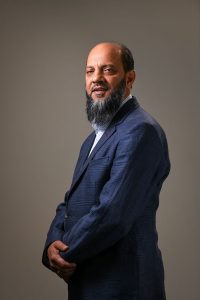
“The challenges facing our government in building large scale infrastructure have to be talked about and addressed. All stakeholders must come together and rally towards the development of infrastructure so that we can stimulate the economy, create jobs and alleviate poverty.
The building and construction sector in South Africa was very strong a decade ago and that was the foundation on which we built our 2010 World Cup bid.
Since then, capital expenditure has been an issue coupled with political tensions. We are however confident things will improve soon. It’s up to us now to come together and do what we need to do to strengthen this industry and economy”.
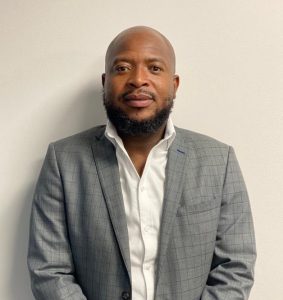 “We talk a lot about bringing in capital from foreign sources and the mistake we make is thinking that skills have to be imported too. African countries must build capacity so that locals can participate in the development of their country.
“We talk a lot about bringing in capital from foreign sources and the mistake we make is thinking that skills have to be imported too. African countries must build capacity so that locals can participate in the development of their country.
Building local capacity not only gets locals employed it’s also a thing of pride to build your infrastructure and leave a legacy. The whole narrative that there aren’t enough opportunities in Africa is often shattered by foreigners who come here and succeed.
Though these foreign entities usually have a capital base we don’t have, we must work together to exploit the opportunities in our own countries.”
Chris Tshivhidzo, General Manager, Grinaker LTA. South Africa.
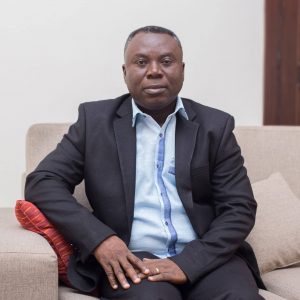 “The private sector must be confident in its ability to deliver. Our confidence and desire to deliver will let the government know that we are ready to start taking on major, impactful projects.
“The private sector must be confident in its ability to deliver. Our confidence and desire to deliver will let the government know that we are ready to start taking on major, impactful projects.
The government also has to have the initiative and foresight that’s required to help build a strong local industrial base. The government can only do this by giving local businesses a chance to try and fail until they get it right.
We have to create room for local entrepreneurs to gain experience; otherwise, we won’t build a robust local economy. It’s not only about awarding tenders but also building expertise and confidence through training and funding.”
Samuel Larbi Darko, CEO, Losamills Consult. Ghana
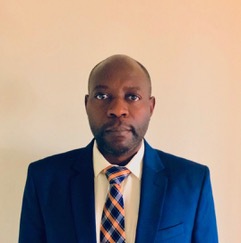
“The future of engineering in our country must be centred on promoting local expertise. It has to involve research and doing things our way because we engage in a lot of copy and paste. We must desist from trying to replicate everything we see abroad. It’s high time we focus on innovation and come up with appropriate solutions for our situation.
We must also improve relations between academia and the industry. Engineering theory must be trimmed so that we can focus more on the practical aspect. It is important to also balance engineering expertise with the business side of the industry. Skills building must come in harmony with the economic impetus of engineering.
The government must come in and support the industry by being intentional. We should emulate countries like South Korea where the government is heavily engaged with the construction industry. In the Ugandan scene, you are pretty much left to fend for yourself. Our situation may make one resilient, but it also stunts the growth of the industry. Our private sector needs support from the public sector to become competitive on the international stage through reserving projects for locals to develop expertise and reducing the cost of capital for contractors”.
Frank Magoba, CEO, Kaizen Africa. Uganda
 “As engineers, we have a pivotal role in ensuring that projects are packaged in a way that they are bankable. We have to ensure that the environmental and social aspects of each project are well taken care of. The engineering sector here can find itself with the ability to do little when it comes to de-risking because many factors such as politics and security come into play.
“As engineers, we have a pivotal role in ensuring that projects are packaged in a way that they are bankable. We have to ensure that the environmental and social aspects of each project are well taken care of. The engineering sector here can find itself with the ability to do little when it comes to de-risking because many factors such as politics and security come into play.
Engineers tend to be very averse when it comes to matters such as politics. Risks such as economic feasibility are, however, in our purview, and we can respond by designing projects with our economic situation in mind. Our government must be keen on infrastructure development so that we can build a robust economy.
Engineering can chime in more productively once our local content policy is strengthened and well enforced. Our local content policy is good on paper but lacks in implementation. Proper adherence to the policy framework will see us start to build for a truly sustainable infrastructural future. Sustainability for us means having infrastructure supply that meets our infrastructure needs”.
Daka Michael, Managing Director, Proess Consulting Engineers. Uganda
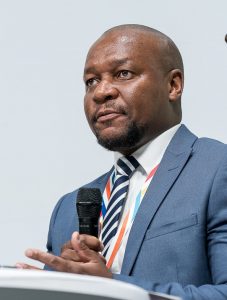
“I am excited about the work we have been putting over the last three years on the Mucina Intermodal Terminal (MIT). The project is all about creating a corridor that will help improve trade and movement of goods between South Africa, Zambia and Zimbabwe. We will have a rail line that will start from the port in Durban, cutting through Zimbabwe, into the Zambian mines. Through the railway, we will have better access to the copper deposits of Zambia and have them exported.
The rails will also help ferry other important goods from these countries up north, to help boost trade volumes. The project also involves the construction of a dry port at the border between Zimbabwe and South Africa to help clear trading activities. We have managed to get the governments of South Africa, Zambia, and Zimbabwe onboard with the projects. The three governments co-signing the project will work to facilitate investments in the project.
We are still doing structural assessments and are in the process of finalising some deals with certain mines. Our target is to have the locomotives in place and begin moving shipments by June next year. The long term goal is to have a railway corridor that keeps going up north. We can have an “AfCFTA” agreement in place, but if we don’t have the means to move goods affordably from Egypt to Capetown, or from Durban to Mombasa, it means nothing”.
Mthandazo Ngwenya, Managing Director, Development and Impact Division, Bigen Africa. South Africa
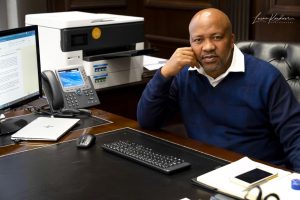 “Though we have done well, we are still battling against the influence of construction behemoths coming out of Europe and China. Multinationals may have a big influence on the continent but given our experience and ranking, we can compete favourably. We rank at 9 on the CIDB grading which is the highest rank; meaning we can execute any project valued at $130 million onwards. We can basically handle what an 8 CIDB firm can do and much more. Our firm has an advantage over our competitors because we have a small executive team that makes quick decisions. Our board can, therefore, make decisions faster and keep agendas going forward. We are also not listed which means that decisions can be made without being delayed by shareholders.
“Though we have done well, we are still battling against the influence of construction behemoths coming out of Europe and China. Multinationals may have a big influence on the continent but given our experience and ranking, we can compete favourably. We rank at 9 on the CIDB grading which is the highest rank; meaning we can execute any project valued at $130 million onwards. We can basically handle what an 8 CIDB firm can do and much more. Our firm has an advantage over our competitors because we have a small executive team that makes quick decisions. Our board can, therefore, make decisions faster and keep agendas going forward. We are also not listed which means that decisions can be made without being delayed by shareholders.
We are well equipped with up to date equipment coming from one of our subsidiary companies and we also employ the latest technology. Our focus is always on Europe and China when it comes to the latest construction trends that can help us move forward faster and more effectively. Our strategy going forward is to position ourselves as the best in the continent. We are doing this by expanding our footprint into countries like Zimbabwe, Malawi, Botswana and Ghana”.
Mongezi Mnyani, CEO, Khato Civils. South Africa
“Engineers here are for the most part very conservative. We don’t take an interest in politics; we’d rather just focus on work and get projects done. Unfortunately, we live in a place where politicians get to make the big decisions because they have the power, while we are relegated to the backbench. So often, therefore, infrastructural development ideas and plans hardly leave the talking phase to go into the implementation phase.
We must increase our voice because the African corporate space is needed if we are to get things going at a faster rate. The government must talk to private players like us and factor us in the infrastructural development agenda. If a twenty-kilometre road is required at a certain location and the government only has the resources to fund five kilometres at one time, we should be able to chime in and help complete it. All the government has to do is create the right framework that allows private players to come in gainfully.
Africans are beginning to divest from the idea of waiting for the government to make needed moves. More and more of us both on the corporate and also on the private citizen level are beginning to take matters into our own hands. Young Africans are pooling resources together and finding solutions to age-long problems every day”.
Brian Chasi, Chairman, E-Square Engineering. South Africa

“Having travelled to many places, I have noticed that we are behind as a continent for many factors. My gospel, therefore, has been one of encouraging synergies amongst Africans. I have done presentations across the continent in places like Malawi, Congo Brazzaville and similar markets. The common theme is that most Africans don’t believe that our answers lie within, but we are working hard to change these perceptions. Collaboration is what we need to elevate.
Africa’s underdevelopment is exaggerated by people who don’t know enough about us, but that does not negate the fact that we have a lot of catching up to do. We have to change our thinking in terms of developing infrastructure. The mentality of expecting the government to cater to all our infrastructural needs is unrealistic. The public sector should be at the centre of policy and security, while the private sector gets to work. Involving private engineers helps to de-risk projects and will also attract investment. There have to be provisions in place that create a good environment for both foreign investors and local players. Certain provisions for local players will help us build the capacity we need for growth”.
Daniel T. Mtambalika, Managing Director, Bicon Namibia. Namibia
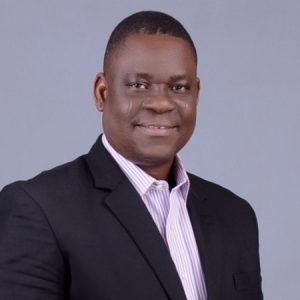 “Before we place a heavy focus on collaboration, we must ensure our construction firms are sustainable. When we achieve sustainability, we can now gainfully collaborate and win. In our two decades of operation, we have become a reliable partner when it comes to providing infrastructure to our citizens.
“Before we place a heavy focus on collaboration, we must ensure our construction firms are sustainable. When we achieve sustainability, we can now gainfully collaborate and win. In our two decades of operation, we have become a reliable partner when it comes to providing infrastructure to our citizens.
We have been identified by key international players that are interested in creating infrastructure in Nigeria as a competent and reliable partner. We understand that if we are to boost our per capita income and alleviate poverty, infrastructure is going to be an integral issue.
Solving our infrastructure issues will go a long way in ridding ourselves of underdevelopment issues that come from a lack of connectivity”.
Adesoji Adeniji, Managing Director, Oat Construction Nigeria Limited. Nigeria
Skills Shortage & Future Technologies
In order for industrialisation of the African continent to be achieved within the framework of the continent’s Sustainable Development Goals, a rapid increase in the number of qualified engineers practising on the continent is required.
Saurabh Sinha, Executive Dean, Faculty of Engineering and the Built Environment, University of Johannesburg, has warned that Africa needs at least a tenfold increase in relevant skills. To do this, it must dramatically raise the number of people who make it from the first year of an engineering degree through to graduation.
More than 500,000 people enrolled for degrees related to engineering and the built environment in South Africa between 1998 and 2010. Only about 15% graduated in that time. Engineering traditionally has a high drop-out rate around the world.
Furthermore, engineering as a profession is not static. Engineering skills should not be static. The dawn of the fourth industrial revolution is disrupting all sectors and industries. Clearly, the future of engineering on the continent is going to be shaped by its approach to technology adoption.
How can the higher education sector and the engineering sector work together to develop the engineering skills Africa needs to fuel its growth?
How will technology adoption shape the future of civil engineering in Africa? What new skills should Africa’s engineers and students be learning to adapt to a changing industry?
 “Skills shortage is a genuine threat to the sustainability of the sector and the private sector must work with the public sector to remedy this.
“Skills shortage is a genuine threat to the sustainability of the sector and the private sector must work with the public sector to remedy this.
The government works to put programs in place to help with skill development in the construction sector. There are guidelines that show how we should structure our skills training.
Different institutions can enhance the guidelines innovatively. Skills training is not just in manual labour, but also in other specialized and high-level technical skills.
We cannot only rely on companies to offer specialized training. We need to bring back technical colleges to help the industry get top quality artisans.
TN Molefe wants to be the company of choice for all the infrastructure needs in South Africa. We want to work with the government and other stakeholders in coming up with sustainable solutions. Our goal is to extend our footprint into all the provinces of South Africa”.
Tumi Monkoe, Head Of Operations, TN Molefe Consulting Engineers, South Africa
 “Unfortunately, in South Africa, and elsewhere on the continent, we are not providing our youth with the skills needed to be successful in this new economy. South Africa, and the rest of the continent, should assess its strengths and weaknesses, and address its challenges and take advantage of its opportunities, in this context.
“Unfortunately, in South Africa, and elsewhere on the continent, we are not providing our youth with the skills needed to be successful in this new economy. South Africa, and the rest of the continent, should assess its strengths and weaknesses, and address its challenges and take advantage of its opportunities, in this context.
In terms of the Fourth Industrial Revolution and its impact on the construction and engineering sector, government and all stakeholders should compare the skills needed to be successful in this new reality, and compare it to what we have and what skills we are providing our future generations with. The identified gaps should be addressed and a new generation of skilled workers should be created.”
Monty Ditibane, Director, DBI Consulting Engineers. South Africa
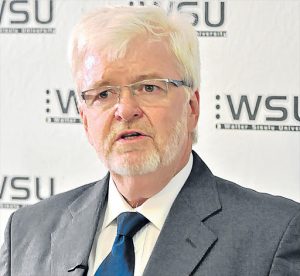 “We can better engage with communities by relocating some of our departments and setting them up in these communities.
“We can better engage with communities by relocating some of our departments and setting them up in these communities.
An engineering department, for instance, can be located at a manufacturing plant. This setup will foster better community engagement and will prepare the students better.
In five years I want us to be living the fourth industrial revolution, and not just preparing students for it.”
Prof. Rob Midgley, Vice-Chancellor, Walter Sisulu University. South Africa
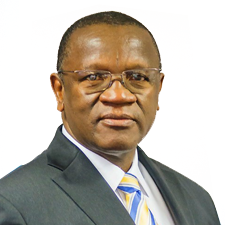 “Institutions of higher learning must remind themselves that industries are profit-making entities. Our job is to demonstrate our worth or end up becoming redundant. If we cannot provide the services that the sector requires because they doubt our delivery or standards, they will seek out other institutions of learning. We must, therefore, understand our industries so that we can identify gaps that if filled, will make them more substantial profits.
“Institutions of higher learning must remind themselves that industries are profit-making entities. Our job is to demonstrate our worth or end up becoming redundant. If we cannot provide the services that the sector requires because they doubt our delivery or standards, they will seek out other institutions of learning. We must, therefore, understand our industries so that we can identify gaps that if filled, will make them more substantial profits.
Universities must step away from having an entitled attitude when dealing with industry and instead develop their value proposition. If you become known for offering value, you will be sought after by local institutions as well as international outfits. If we embrace highly specialised competencies in civil works and telecommunications, our students will be highly sought after and our school will be placed on a pedestal.”
 “The industry must have a vision of what it sees as its future and the best possible scenario. We then present that vision to academia so that they know how to prepare students. The industry wants to produce the best quality at the lowest possible cost without compromising quality while ensuring social good.
“The industry must have a vision of what it sees as its future and the best possible scenario. We then present that vision to academia so that they know how to prepare students. The industry wants to produce the best quality at the lowest possible cost without compromising quality while ensuring social good.
Academia must come in by producing quality research that we can buy into so that we can have the outcomes we want. When we have the outcomes we want, we can then help fund higher education initiatives that help all of us. We must have these kinds of discussions when engaging with academia because they will make the whole industry better.
When the whole industry shines, the young ones will want to join in and be part of it. The entire engineering scene in Africa will be attractive if we stay in contact, and do projects together”.
Ing. Leslie Alex Ayeh, President, Ghana Institution of Engineering. Ghana

“The engineering dropout rate in our country will drop if we update our curriculum in my opinion. We must question why engineers aren’t being taught in schools that you can build decently using containers and other materials. We must approach solving our housing crisis by exploring new building materials and new ways to build.
Revolutionisng this industry will involve closer ties between academia and the private sector. New businesses need to use research being produced in institutions of higher learning. Students must also be up to date so that the industry can absorb them. We are focusing on building a container estate with a proper underground system, drainage system, and water systems. Our flagship project will be a model of what we believe Africa can be. As a country and continent, we must also make our regulatory environment suitable for investment. There should be a healthy balance between local content laws and an investor friendly environment. We local players must also open our minds to new ideas”.
Benking Kwesi Mantey, Managing Director, Nom Company Limited. Ghana
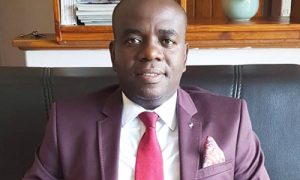 “We ought to take the example of Europe when it comes to transferring skills to our young people. We in South Africa, for instance, have benefitted from the skills we possess but have not transferred these skills to people in other African countries. Our companies do a lot of work in DRC, Zambia and other countries but where are the engineers from those places? We shouldn’t just go to these countries and do repeat projects, we should work to improve capacity in other African jurisdictions so that they can take over. We must also look at alternative energy sources to help fuel our rising populations all over the continent.
“We ought to take the example of Europe when it comes to transferring skills to our young people. We in South Africa, for instance, have benefitted from the skills we possess but have not transferred these skills to people in other African countries. Our companies do a lot of work in DRC, Zambia and other countries but where are the engineers from those places? We shouldn’t just go to these countries and do repeat projects, we should work to improve capacity in other African jurisdictions so that they can take over. We must also look at alternative energy sources to help fuel our rising populations all over the continent.
Our company works with companies from India, Italy and other places to develop our renewable energy capacity. Renewable energy is very new in our continent and we debuted our services with solar energy before we started looking at wind power. This year alone, we have done about five solar projects as well as wind projects. We also want to get youngsters interested in the industry so that they can provide the same quality services that can be found in more developed markets. Our approach is to create good relationships with engineers from all over the world. We also play an advisory role when dealing with academia so that we can give input in terms of new programmes to introduce.
I put integrity first when it comes to running businesses it’s a biblical principle that I believe in completely. If we want investors interested in bringing capital our way, we have to move with integrity. Risks such as corruption should no longer exist in our space, and we must work together to eliminate that. Other than allowing ourselves to be tempted into bribing our way into winning tenders, let’s win based on our good work and track record. Establishing a good track record gets you noticed and builds a better name for companies even in international markets”.
Solly Phalanndwa Pr, Group Managing Director, Mukona Group. South Africa
 “The private sector has a role to play when it comes to studying the needs of the country. We have been using the same methods of infrastructure development that haven’t served us well enough for decades because there just wasn’t enough research done. Our role is to, therefore, bring forth a new way of doing things that will usher progressive development. We must devise ways of attracting investors and convincing financiers to provide the needed capital. When we started all those years ago, attracting investors to Madagascar was very difficult. Today, it is not as difficult as it was because we have made some progress in our development. People out there are realising that Africa has a lot to offer despite the risks, and our message is being embraced.
“The private sector has a role to play when it comes to studying the needs of the country. We have been using the same methods of infrastructure development that haven’t served us well enough for decades because there just wasn’t enough research done. Our role is to, therefore, bring forth a new way of doing things that will usher progressive development. We must devise ways of attracting investors and convincing financiers to provide the needed capital. When we started all those years ago, attracting investors to Madagascar was very difficult. Today, it is not as difficult as it was because we have made some progress in our development. People out there are realising that Africa has a lot to offer despite the risks, and our message is being embraced.
We need comprehensive studies done so that we can have a clear picture of what is needed and how that must be addressed. Our job at Filatex is to help the government by letting them know what needs to be done while bringing in some international companies to help. The cost of production has to be factored in as well as the reliability and applicability of the solutions”.
Hasnaine Yavarhoussen, CEO, Groupe Filatex. Madagascar

